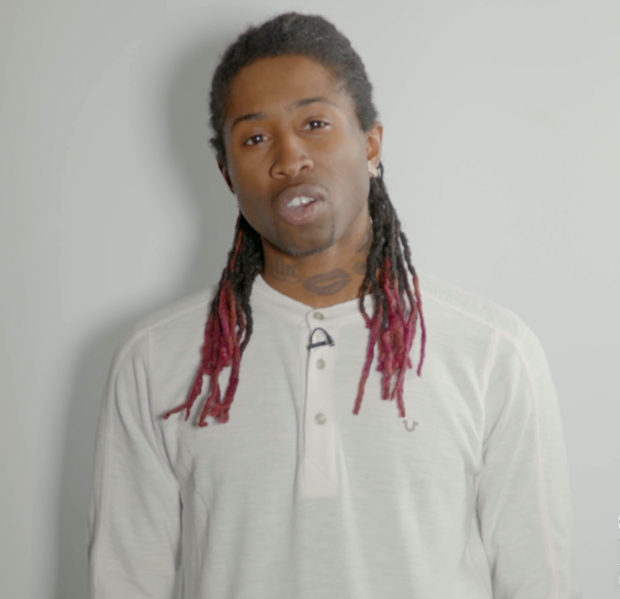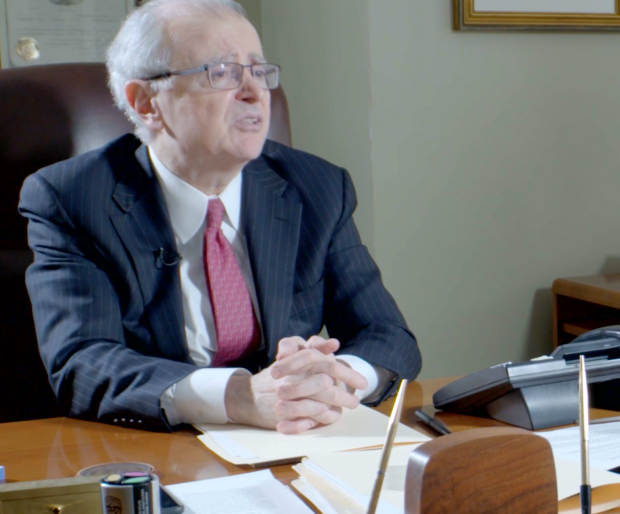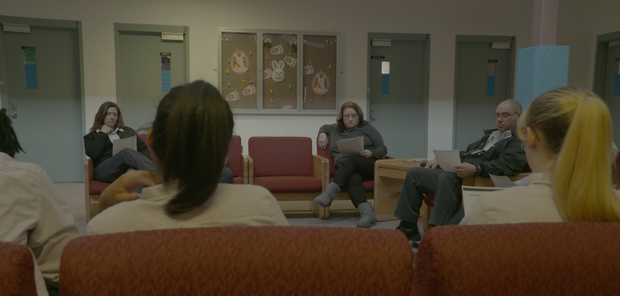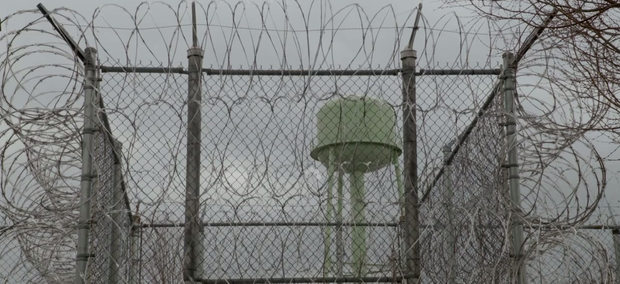"They're not adults": N.Y. seeks new approach to juvenile justice
On a recent Friday afternoon in the Mott Haven neighborhood of the South Bronx, one of the poorest Congressional districts in the U.S., 25-year-old Tyree Hicks was catching up with friends from a local youth mentoring program. They traded jokes and listened to a new song that 21-year-old Lamell Carrington had composed and played for them on his phone.
"It's called 'Motivation,' and it's pretty much a rap ... of how I got here today," said Carrington. The lyrics are about a young man from "the hood" who wants to provide for his family, as he internalizes their daily struggles, financial and otherwise. Carrington was born and raised in East Harlem's Wagner House projects before moving to Queens as an adolescent. He joined a gang when he was 10 years old.
Hicks' story is similar: at age 13, he got involved with the Crips gang until his late teens, when he was sent to New York City's Rikers Island correctional facility.
"I came from Jersey to New York in '09, around the time I had my son," said Hicks. "Pampers and stuff was coming up, I felt like my back was against the wall, so I went back into the street, selling drugs ... playing with guns, selling them. ... I got into a situation, where I had to do what I had to do, and one day I got stopped by the cops. They caught me and gave me eight months in Rikers Island."
Both Hicks and Carrington were in and out of the system until probation officers referred them to a mentoring program that was part of the city's Young Men's Initiative. They were subsequently hired as peer mentors at Community Connections for Youth, a grassroots nonprofit organization based in Mott Haven that champions diversion programs, engaging youth involved in the criminal justice system in productive neighborhood activities.
"Here today I work for CCFY [Community Connections for Youth] as a mentor to be able to give back to the youth," said Carrington.
There are around 500,000 youths in the U.S. criminal justice system - adult prisons and jails, juvenile facilities and probation - according to latest data compiled from several Department of Justice reports. A tenth of those are in New York, one of only two states - the second is North Carolina - that treats 16- and 17-year-olds, who comprise the bulk of all juvenile cases, as adults and not juveniles, regardless of the crime.
"Here is the problem: In New York you're criminally responsible at age 16. ... They're not adults!" Jonathan Lippman, chief judge of the New York State Court of Appeals, told CBS News.
Lippman has been advocating for juvenile justice reform in the state, namely raising the age of criminal responsibility, for the past five years. The "Raise the Age" movement has recently gained momentum in Albany, after New York Gov. Andrew M. Cuomo launched a campaign in early March to rally support for his bill to raise the age of criminal responsibility in the state.
"Any expectation that you're going to put a 16- or 17-year-old in a state prison and you're going to rehabilitate them or you're going to teach them or they're going to come out better than they went in is totally unrealistic," Cuomo said in his 2015 State of the State address.
In a 164-page report, the Governor's Commission on Youth, Public Safety & Justice said its recommendations, including raise the age of criminal responsibility, would reduce crime statewide and actually save taxpayer dollars.
"To take a child - and I underline that word child - and treat some mistake in judgment that they make as equally culpable as an adult criminal is counterproductive," said Lippman. "You're ruining these kids' lives before they've had a chance to be part of the American Dream."
"Incarceration [for] children should be the last possible resort."
A key focus of the growing Raise the Age movement is housing youths and adults in separate correctional facilities. Youth in adult facilities are: five times more likely to commit suicide than the general population and eight times more likely than youths in juvenile facilities; 50 percent more likely to face an armed attack than those in juvenile facilities; five times more likely to be sexually assaulted than in youth facilities; and around 25 percent more likely to reoffend than youth in juvenile facilities, according to data cited in the governor's commission. The reports also identifies that, on any given day, there are approximately 700 youths in local jails and 100 in state prison. Sixteen- and 17-year olds who are routinely sent to adult jails and prisons are often housed and contained in separate units.
Yet even separated from adults, violence is common among teen inmates.
A recently retired corrections officer who worked at New York City's Rikers Island facility told CBS News how "constant fights" occur between youths at the jail, because they're contained to certain areas within it.
"The mindframe is that they have to put up this front that 'I'm a big man or big woman about town, and I can handle this,' when, actually, they're still children," said the former guard who asked not to be named.
The CCFY youth mentors in Mott Haven, including Hicks and Carrington, echoed this idea.
"It just felt like it was more vicious than the street," said Hicks. "I had to fight with COs [correctional officers], I had to fight with other gangs, with older people, just for dumb things, like my bed or my tray - or [you're a] Blood, I'm [a] Crip."
Raise the Age reform would strictly limit 16- and 17-year-olds to incarceration in juvenile facilities. Columbia Girls Secure Facility in Columbia County, about two hours north of New York City, is considered a model detention center by Raise the Age advocates. A small, two-building facility enclosed in barbed-wire, Columbia Girls is more boarding school than prison, especially compared to the much larger boy's juvenile facility next door, Brookwood Secure Center.
"We have a capacity for 16 girls and right now our population is 15," said Anita Sapio, former facility director at Columbia who now oversees all girls' facilities in New York State.
At lunchtime on St. Patrick's Day, the girls at Columbia were baking cookies topped with green icing. Earlier that morning, they had cooked corned beef and cabbage for lunch, before attending a group therapy session, where the main topic of discussion was self-validation.
"We currently service the 16- and 17-year-olds," Sapio said as she walked to the girl's afternoon volleyball session with two personal trainers hired to come into the facility at least once a week.
"The Raise the Age model will work best with a smaller facility where there is a larger resident-to-staff ratio," said Sapio. "Most of them [the girls] end up transitioning back to the community and back to their families."
If approved, Cuomo's bill would shift jurisdiction for about 86 percent of offenses committed by 16- and 17-year olds to Family Court, which is a problem-solving court aimed at rehabilitative sentencing. Family courts were set up 50 years ago, pioneered by New York's legislature, and they provide services that currently are not available to youth in the adult criminal justice system.
For more serious, cases, including violent crimes, the proposal would provide for specific sections in adult court with judges trained in adolescent development and crime prevention techniques.
"One of the things to remember is these kids, they're adolescents, they're growing, they're learning, and this is our chance to have a positive impact on them for the time that we have them," said Sapio. "And I think we do a successful job at that."
"Statistics show us that children who are treated with the family court model are much less likely to again commit crimes than if we treat them like adults," said Lippman. "The goal is not to punish, the goal is to get these kids to live a useful and meaningful life."
"Fifty years after the Family Court Act, the bottom line is - raise the age of criminal responsibility in New York. Period."



